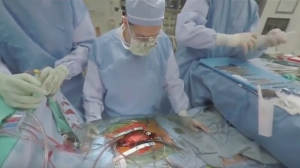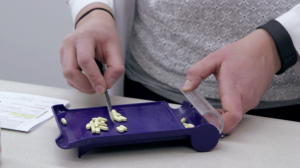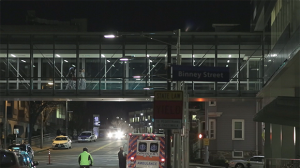NEW YORK (Reuters Health) – Roughly one-third of venous thromboembolism (VTE) events that occur in patients who’ve had surgery for cancer happen after they leave the hospital, with often deadly outcomes, results of a new study suggest.
“This study supports extending VTE thromboprophylaxis postdischarge after major surgery for cancer,” Dr. Ryan P. Merkow, from the department of surgery at Northwestern University Feinberg School of Medicine and colleagues conclude.
They note, however, that more study is needed to determine an optimal, cost-effective prophylactic anticoagulation regimen. Their report was published online April 26 in the Annals of Surgery.
From 211 hospitals participating in the American College of Surgeons National Surgical Quality Improvement Program (ACS NSQIP), Dr. Merkow and colleagues identified 44,656 patients who had surgery for 9 cancers between 2006 and 2008.
VTE occurred in 1.6% of all patients, most commonly after esophagogastric surgery (4.2%) and hepatopancreaticobiliary surgery (3.6%), they report. “Because ACS NSQIP collects outcome data only up to 30 days, it is likely that the proportion of post-discharge VTE events was even greater,” they note.
Overall, 33.4% of VTEs occurred after the patients left the hospital.
Factors significantly associated with postdischarge VTE (P < 0.001 for all) included age 65 and older, cancer/procedure type, metastatic disease, congestive heart failure, higher body mass index (25 kg/m2 or greater), ascites, thrombocytosis (greater than 400,000 cells/m2), albumin (less than 3.0 g/dL) and surgery lasting more than 2 hours. “Overall, VTE was significantly more likely after gastrointestinal, lung, prostate and ovarian/uterine operations (all P < 0.001),” the investigators report. Postdischarge VTE was associated with a six-fold increased risk of death (8.0% vs 1.3%; P < 0.001). The investigators point out in their report that most cancer patients routinely receive VTE prophylaxis after surgery while in the hospital, although there is “no clear consensus” on how long it should continue. They further note that outpatient thromboprophylaxis after cancer surgery is “uncommon.” Based on their observations, Dr. Merkow and colleagues think routine postdischarge VTE prophylaxis “should be considered for high-risk patients.” Ann Surg 2011




